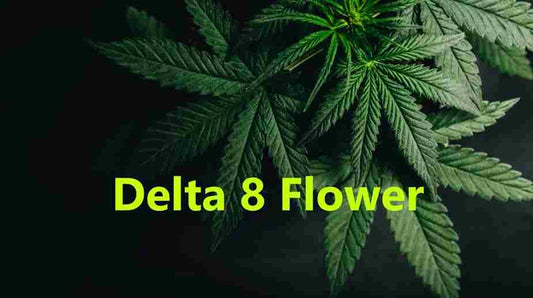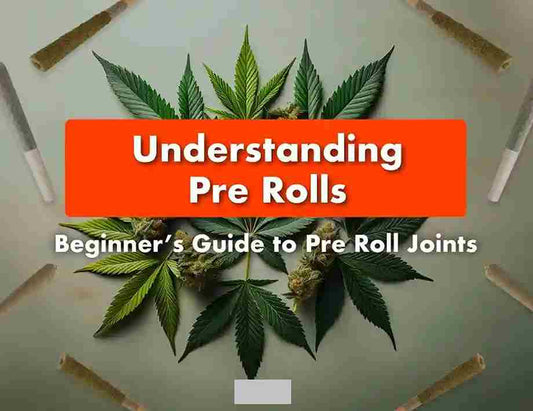What is the difference between THC and THC-A? Which is stronger?
What is THC?
Delta-9-tetrahydrocannabinol (THC) is just one of over 100 cannabinoids found in the cannabis/hemp plant. Known for its ability to produce a head high, THC can be found in both cannabis strains and hemp, which is the legal form of cannabis. While it is commonly used for recreational purposes, THC has also been extensively researched for its potential therapeutic benefits. While most studies focus on medical cannabis as a whole, THC specifically plays a crucial role.
What is THCa?
Transformed from THCa, delta-9 THC (THC) is just one of over 100 cannabinoids found in cannabis/hemp. THCa, the precursor to THC, does not cause a head high like its isomers do, but rather provides a subtle mental effect.
THC and THCa: Key Differences
THC and THCa differ in three key ways: its origin, strength/effects, and side effects.

Origin of hemp
The primary distinction between THC and THCa is where they come from.
THCa is found in live hemp plants, but THC is not. THCa must be decarboxylated, which means heated, in order to lose its acid ring and produce THC.
To understand this, you should be familiar with another cannabinoid: cannabigerolic acid (CBGa).
CBGa is the cannabinoid from which all other cannabinoids are formed. It is present in immature hemp plants.
As the hemp plant matures, the majority of the CBGa it initially contains is transformed into THCa, CBDa, CBCa, and CBG. As a result, no live plants contain THC. Rather, it occurs spontaneously when THCa is decarboxylated.
THC is incredibly potent, with intoxicating effects that can be activated quickly depending on the method of consumption - within 15 to 90 minutes. Users may experience heightened senses, altered perception of time, increased appetite, and a sense of relaxation. Discover the full potential of this incredible product and unleash your senses with THC!
Discover the exceptional potency of Decarboxylated THCA - equivalent to THC in strength. Its cannabinoid potency remains unchanged during the conversion process, and only becomes activated upon heating. Unheated THCA may offer subtle effects such as sleepiness and mild boosts in productivity, but its psychoactive properties are limited. Its effects may vary among individuals.
Power
THC is significantly more powerful than THCa, which is more like the "activated" form of the drug. THCa is not psychoactive; it is.
The head high produced by THC is interspersed with calm and euphoric sensations. After using THC, some people also claim to have increased appetite, changed perceptions of time, and enhanced sensory perception.
However, THCa has very little effect; if you put it in an edible or other product, you won't really "feel" it. While these effects vary throughout individuals, some have reported mild feelings of vigor or tiredness after using it.
Rather, there are more ways that THCa supports both physical and mental health, which are discussed in the section below titled "Benefits of THCa."
Side Effects
Both THC and THCa are considered safe to ingest, and recent studies indicate they possess potential medicinal benefits. However, there could also be some adverse effects associated with their use. While the impact of THCa has not been extensively studied, evidence from personal accounts suggest that it could cause lethargy or boost energy levels in individuals.
Effects on the Mind
The euphoric effects of THC are well-known, and they include mood swings, increased appetite, and decreased sense of pain. Because of these effects, THC is a popular drug for recreational usage.
However, the psychoactive effects of THC are not produced by THCA molecules. Nonetheless, it might offer health advantages like neuroprotective and anti-inflammatory qualities.
Chemical Composition and Characteristics
There is a small structural difference between THC and THCA.
The cannabinoid THCA is the precursor of THCA and has an additional carboxylic acid group that releases THC when heated. We can observe that the carboxylic group influences the psychotropic characteristics of the molecules by comparing the shapes of THCA and THC.
Status Legal
Depending on where you live, THC vs. THC may or may not be legal.
THC is only permitted for medical or recreational use in a few states or nations, and it is classified as a controlled substance in many other nations.
Since THCA does not have the same psychoactive effects as THC, it is not usually regulated or monitored.
Because cannabis exists in a legal gray area in many jurisdictions, the only method to legally access its psychoactive effects is through products containing thca manufactured from hemp. THCA can be legally purchased as hemp flower or raw cannabis extract, but all it takes is a lighter to turn it into THC.
THC can have the following potential adverse effects:
Anxiety
Dry mouth.
Memory loss.
Difficulty thinking and talking
Red eyes.
Delayed reaction time
Heart rate rises.
Increased appetite.
THC has a significantly greater potential drawback than THCa. However, most of these negative effects can be mitigated or eliminated with correct THC dosage.
The Conversion: How THCa Turns into THC
Witness the euphoric head high experience of cannabis flowers (whether hemp or marijuana) caused by the cannabinoid THC, which is not present in living plants. Instead, they contain CBGa-derived tetrahydrocannabinolic acid (THCa), which degrades as the plant matures. With the conversion of THCa into THC through decarboxylation, enjoy the transformative effects of this powerful compound.

During decarboxylation, THCa loses its acidic group and transforms into its neutralized form, THC (a similar conversion also occurs when CBDa becomes CBD). This process occurs to a small extent during cannabis storage, but primarily happens when the plant is heated - this is why products like prerolls, vapes, and dab rigs are effective for inhaling THC. When heated, THCa becomes THC and its psychoactive properties are activated. So, consuming THCa flower through smoking actually means consuming THC. In products like gummies and drinks, where no heating occurs during consumption, the THCa is decarboxylated and converted into THC before being added to the product. However, for those who prefer to consume raw THCa, this step can be skipped, allowing them to enjoy THCa in its original form through products like gummies and tinctures.
What THCa Percentage Is Good?
Rather than using THC as the primary classification system, some dispensaries use THCa levels. However, when THCa is burned, it turns into THC, therefore the THC level is actually the THC level minus a small amount to reflect the conversion.
Strong, premium cannabis usually has between 15 and 25 percent THC, so seek out strains with comparable THC content.
Asking the budtender (or the firm, if you're buying online) how to read and comprehend the potency of the different strains for sale is generally a good idea.
Advantages of THC
Effects and "high" from THC are widely known. But THC isn't just for getting high; studies and anecdotal evidence point to a number of possible therapeutic applications for it.
Stress & Anxiety: Depending on how much you take, research on THC's potential benefits or drawbacks for anxiety sufferers reveals. According to a Yale School of Medicine study, THC may have anxiety-reducing effects at lower dosages. Higher dosages could make you anxious.
Appetite: The name "munchies," which describes the sensation of hunger you get after smoking cannabis, comes from THC's ability to promote appetite. Nonetheless, this impact has also been formally studied by researchers for medicinal purposes. According to a Cleveland Clinic research from 1994, THC may stimulate hunger.
Nausea: A THC:CBD combination showed antiemetic (anti-nausea and anti-vomiting) effects in a 2010 study conducted at a significant research facility in Barcelona, Spain. According to the study, THC should be investigated further for use in treating nausea and vomiting brought on by chemotherapy.
Sleep: It has been suggested that the euphoric and relaxing effects of THC may help induce peaceful sleep. Three Australian researchers found that medical cannabis increased the amount and quality of sleep in a 2022 study.
Pain: A number of studies have suggested that THC may have analgesic (pain-relieving) qualities; these effects may be partially attributed to its psychedelic components.
advantages of THCa-
Anecdotal data and preliminary studies suggest that THCa may have therapeutic benefits in a number of areas even if it has no intoxicating effects:
Relaxation: Without the intoxicating effects of THC, anecdotal data suggests THCa may aid in mental calmness and relaxation.
Seizures: According to a 2017 review of studies, THCa has demonstrated anticonvulsant (anti-seizure) efficacy in multiple investigations.
Potential neuroprotective effects of THCa were discovered by researchers in Spain and Italy in a 2017 study. The experts recommended more research on THCa as a neurodegenerative disease treatment.
Inflammation: A 2017 study discovered that THCa has anti-inflammatory properties. The findings were published in the journal Cannabis and Cannabinoid Research.

How THC and THCa Function in the Body
The Endocannabinoid System (ECS), a receptor system in your body that controls a number of essential processes like mood, inflammatory response, body temperature, and sleep, is how cannabinoids like THC and THCa act.
Maintaining equilibrium between your body and mind is the main job of the ECS.
Your ECS contains two primary types of receptors:
CB1 receptors, which produce mental or "head" effects when activated
CB2 receptors, which produce physical or "body" effects when activated
substantial binding of THC to CB1 receptors results in substantial psychoactive effects. THCa doesn't give off the same "high" since it doesn't connect to these receptors as strongly.
Rather, THCa probably helps your ECS in other ways; further study on THCa's effects is required to completely comprehend how it works.
How to Use THC and THCa: Types of Products and Doses
There are other similar variants of THCa and THC accessible. Just keep in mind that because the THCa in vape pens, flowers, and other smokable goods converts into THC when heated, they are essentially THC products.
Flowers & Vapes
30–50% bioavailability
Time of Onset: 5–10 minutes
Similar to oils, vapes and flower offer a higher potency delivery system. Instead of going via the digestive tract, they enter your body through the lungs and release cannabinoids.
However, keep in mind that THC is what vape pens and flower provide your body, not THCa. Thus, these choices are not authentic THCa delivery systems.
Oil
20–30% bioavailability
Start Time: 15 to 20 minutes
Because oils may be ingested sublingually without passing through the digestive system like edibles do, they are an extremely effective delivery route for THCa or THC.
Oils are also a fantastic option for medicinal purposes because you may adjust your dosage to the last drop.
Capsules
10%–20% bioavailability
About an hour is the onset time.
Similar to edibles, capsules provide a fixed-dose way to consume THC and THCa.
Gummies
10%–20% bioavailability
About an hour is the onset time.
Gummies are the most popular kind of edible, but there are other varieties as well, such as brownies and candies. The benefit of edibles is that they have a fixed dose and taste excellent.

THC versus THCa: Lawfulness
The 2018 Farm Bill has officially legalized all cannabinoids derived from hemp at a national level. This means that cannabis that is classified as hemp must have a dry weight THC content of no more than 0.3%. Despite this, some states still have laws prohibiting the use of THC. And while the legal status of THCa remains uncertain, it's safe to assume that if THC is prohibited in your state, THCa is likely to be as well (and vice versa if THC is legal).
Drug Tests: THC vs. THCa
THC and THCa are both detectable in drug testing.
Because THC is present in marijuana, which is prohibited in many jurisdictions, it is screened for. On the other hand, THCa is occasionally employed as the target analyte for THC, which means that if you do a drug test, it looks for THCa to find out if you've been using THC.
Therefore, if you're about to take a drug test, we advise against using THCa and THC products. Consider using a CBD isolate or broad spectrum CBD product as an alternative.
Finally, is it worthwhile to try THCa?
The passionate team at your dispensary will continuously discuss THC levels instead of THCa levels, ensuring that you are well-informed about the distinction between the two.
How does THC and THCa differ from one another?
The cannabis plant contains the cannabinoids THC and THCa.
THCa is the non-psychoactive precursor of THC that is heated to form THC, a process known as decarboxylation. THC is the psychoactive cannabinoid that causes the euphoric effects that are frequently associated with cannabis use.
What is a high percentage of THCa?
Although the exact ratio of THCa to THC is unknown, THCa is normally transformed to THC to the greatest extent possible in plants prior to decarboxylation. In general, strains with 15–25% THCa are regarded as strong THC.
What makes THCa distinct?
The acidic form of THC is called THCa, or tetrahydrocannabinolic acid (tetrahydrocannabinol). THCa transforms into THC when heated, although it has no psychotropic effects on its own. The "high" feeling is brought on by THC. THCa differs from the other cannabinoid due to the presence of an extra carboxyl ring.
Is THC legal?
While the legality of THC varies by location, it is important to note that some states and countries allow its use for medical or recreational purposes, while others prohibit it entirely. It is possible to obtain federally legal delta-9 THC products, as long as they are derived from hemp and contain less than 0.3% concentration by weight. This aligns with the 2018 Farm Bill, which legalized hemp and its derivatives.
Is THCA legal?
THCa is widely accepted in many countries and states because it is non-psychoactive and does not cause the euphoric effects often associated with marijuana. It is typically legal when sourced from industrial hemp plants, but it's essential to verify with your local laws before buying THCa due to some state restrictions.
Is THCa equally effective to THC?
THCa is not as powerful as THC and does not have any psychoactive effects. But when THCa flower is heated, like when it is smoked, it transforms into THC.
THCa produces what kind of high?
When taken raw, THCa does not give rise to a high like THC does. Rather, the majority of THCa's effects are expressed in terms of health advantages. Whether THCa is taken as an extract or as raw cannabis flower, it won't give rise to the same kind of high that comes from smoking hemp or marijuana.
THCv versus THCa?
THCv is a less prevalent form of THC that may decrease hunger and promote bone formation, while THCa is a non-psychoactive precursor to THC with possible anti-inflammatory and neuroprotective effects.
Experience a meticulously curated selection of high-quality products designed to enhance your overall wellness. From Delta 9 gummies and THCa flower to CBD carts and Delta 8 sweets, we have the best-selling pain treatment and anti-inflammatory solutions you need. Our THC, THCa, and HHC gummies are specially formulated to improve sleep quality. We also offer THCP items, THCa dabs, Delta 9 products, and live resin carts for those seeking anxiety relief and relaxation. And that's not all - Smokegem has an extensive selection of THCV items, Delta 9, Delta 10, and Delta 11 carts, all available in the United States, including Tampa, Florida and all over states and cities. Plus, we provide premium dab pens, batteries, and dry herb vaporizers, as well as CBD products for dogs and cats. Trust us to bring you the therapeutic benefits of cannabis in a variety of forms.





